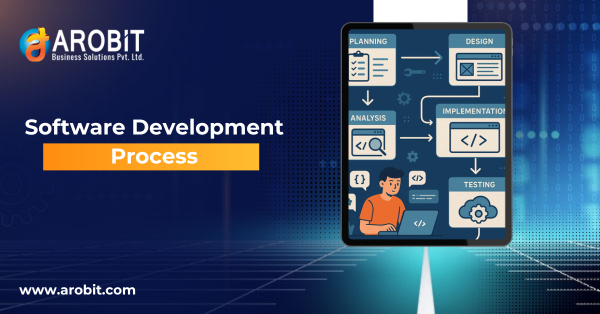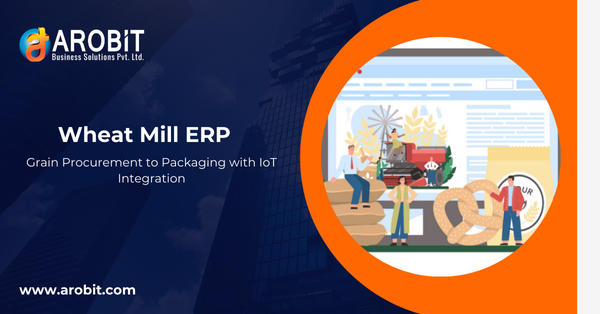63% of the small businesses are thinking about investing in software development to enhance their operational deliveries.
With such fierce competition, businesses are planning to enhance their delivery process to get an edge in the industry. The best way to do so is by investing in the software development process. It is a great way for small and medium enterprises to enhance efficiency in their project delivery and gain market presence.
If you are thinking how your business can make the most out of software development, then here we have it all covered for you in detail. Read on.
Say Hello To Software Development Process
A methodical series of phases to create the desired software product defines the software development process. It includes numerous actions guaranteeing the timely, under-budget delivery of the end product satisfying customer needs.
How Is It Defined?
Fundamentally, the software development life cycle is the methodical design, creation, testing, and upkeep of software programs. This approach guarantees efficient, scalable, dependable software.
If you are thinking how the software development process can enhance the overall value of your business operations, then below we have all the answers. Read on.
Importance of the Software Development Process
It is important that you understand how the software development process can uplift your business delivery to give you an edge.
- Meeting Business Needs: A well-defined software development process ensures that the software aligns with the specific needs of the business, enhancing operational efficiency.
- Quality Assurance: By following a structured approach, companies can ensure that their software is tested thoroughly, reducing bugs and enhancing user satisfaction.
- Timely Delivery: A clear process helps in managing timelines effectively, ensuring that projects are completed on schedule.
- Cost Management: Proper estimation and tracking of resources and costs are facilitated, allowing businesses to stay within budget.
- Risk Management: Early identification of potential risks is possible through a defined process, allowing teams to mitigate issues before they escalate.
So, this shows how it can significantly impact your business and bring you the benefits as discussed below.
Benefits of a Structured Software Development Process
Key Phases of the Software Development Process
There are several key steps involved in the software development process that are important for your business to understand and invest accordingly for the best results. Here it is.
1. Communication
The initial phase involves discussions between stakeholders and the software development team to gather requirements and understand the project scope.
2. Requirement Gathering
In this phase, detailed information is collected regarding user needs, system requirements, and functional specifications.
3. Feasibility Study
A feasibility study assesses whether the project is viable in terms of financial, technological, and practical aspects.
4. System Analysis
This planning phase involves creating a roadmap for the project, identifying limitations, and determining resource allocation.
5. Software Design
The design phase combines gathered information to create both logical and physical design specifications for the software.
6. Coding
During the coding phase, developers write the actual code based on the design specifications.
7. Testing
Software testing is conducted to identify and rectify defects, ensuring the software functions as intended.
8. Integration
This phase involves integrating various components of the software, including front-end and back-end systems.
9. Implementation
The software is deployed in the production environment, making it available for users.
10. Operation and Maintenance
Post-implementation, the software must be maintained and updated to ensure ongoing efficiency and usability.
Software Development Process Models
There are several software development process models, each with its own approach to running software projects. Among the most common models are these:
1. Waterfall Model
A conventional, linear method called the Waterfall model requires each phase to be finished before the next one starts. Projects with well-defined needs are best suited for it.
Advantages:
- Clear structure and easy to manage.
- Suitable for small projects with fixed requirements.
Disadvantages:
- Inflexibility to changes in requirements.
- Late testing phase can lead to increased costs.
2. Agile Model
Agile development emphasizes iterative progress by means of tiny, incremental modifications. It promotes adaptability and teamwork.
Advantages:
- High adaptability to changing requirements.
- Continuous feedback and improvement.
Disadvantages:
- Requires strong team collaboration.
- Less predictability in delivery timelines.
3. Spiral Model
The Spiral model combines iterative development with an emphasis on risk assessment. It permits several rounds of testing and development.
Advantages:
- Early identification and mitigation of risks.
- Flexibility to make changes throughout the development process.
Disadvantages:
- Can be resource-intensive.
- Complex to manage due to multiple iterations.
4. Incremental Model
The Incremental model develops software in parts, allowing partial functionality to be delivered early.
Advantages:
- Early delivery of usable software.
- Lower risk of project failure.
Disadvantages:
- Full system may not be available until later stages.
- Integration challenges can arise.
Custom Software Development: A Strategic Approach
Custom software development refers to the creation of software tailored to meet the specific needs of a business. This approach is gaining traction among SMEs as it allows for unique solutions that align perfectly with operational processes. Take a look at how custom software development can help your business.
- Tailored Solutions: Custom software is designed to fit the unique requirements of a business.
- Scalability: As businesses grow, custom solutions can be adapted to accommodate new needs.
- Competitive Advantage: Unique software can provide a competitive edge by enabling more efficient processes or innovative services.
- Integration: Custom software can be designed to integrate seamlessly with existing systems, enhancing overall functionality.
Choosing Arobit As Your Software Development Company
We understand why selecting the top software development company is essential to achieve the results. We at Arobit have the desired expertise and skills to help you with the software development services. Take a look at the reasons why we can assist you with the results. Check it out.
1. Assess Experience and Expertise
We have a proven track record in developing software solutions similar to your requirements. You can always ask for our portfolio and client testimonials.
2. Evaluate Technical Skills
We possess the necessary technical skills and expertise in the latest technologies relevant to your project. Our communication is key to a successful partnership and values transparency and collaboration.
4. Support and Maintenance
You can trust us with your support and maintenance services as it is offered post-launch. We understand how ongoing support is essential for the longevity of your software.
5. Cost-Effectiveness
While budget considerations are important, the cheapest option is not always the best. We are going to assess the overall value and then help you with the best budget.
Final Take
We understand how the software development process is one of the most important components for any business who are looking to succeed in such a competitive market. Our experts will understand its phases, models, and the significance of custom software development. It helps the business owners to make informed decisions that can enhance their operational capabilities significantly and boost growth.
So, it is important that you connect with the right software development company to ensure that the software developed is in perfect sync with the business requirements. If you are looking for the experts to help you with the custom software development solutions, then connect with the team Arobit now!
Frequently Asked Questions (FAQs)
Q1.What is the software development process?
A planned method of producing software applications, the software development process includes phases including requirement collecting, design, coding, testing, and maintenance.
Q2. Why is it important for businesses?
A well-defined software development process guarantees that projects satisfy customer needs, are finished on schedule, and uphold quality standards.
Q3. What are the common software development process models?
Each with its own benefits and drawbacks, common models are Waterfall, Agile, Spiral, and Incremental.
Q4. What is custom software development?
Custom software development is the process of designing software especially suited to a company's requirements, hence providing particular solutions that improve competitiveness and efficiency.
Q5. How do I choose a software development company?
When choosing a software development company, think about expertise, technical knowledge, communication, support, and cost-effectiveness.








